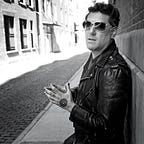Good, Clean Satanism
What we can learn from the man who wrote ‘The Devil’s Notebook’
I’ve been studying a topic that I never thought would interest me: Satanism.
Wait. It’s not what you think. Let me be clear. There is no actual tradition of Satan worship in the West. Being a tradition, on par with a historic faith, requires a discernible family tree of institutions, liturgy, canonical works, and sanctioned beliefs. Satanism in the West has none of this. It is, alternately, a historic accusation hurled against whomever is outside a dominant belief system; a misnomer, such as the absurdly hyped “Satanic abuse” panic of the 1980s; or an artistic and experimental system harnessed by impresarios and seekers, and highly individualized to their personal outlook.
Enter Anton Szandor LaVey (1930–1997), founder of the Church of Satan in San Francisco in 1966, and arguably the most famous “Satanist” in history. Journalists once thrilled to the claims and exploits of the goateed and shaved-headed LaVey, who mythologized his past as a carney, hobnobbed with celebrities like Jayne Mansfield and Sammy Davis Jr. (the performer recounts his flirtation with Satanism with admirable candor in his memoir, Why Me?), and provided endlessly good copy.
For instance, there was the time in 1969 when Anton told a credulous reporter from…
